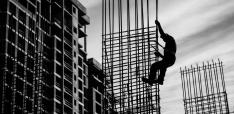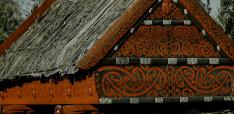GLI at the G7 - Abe’s efforts to win over the World’s Media
This year the Global Leadership Initiative at the University of Sheffield have taken a team of policy analysts to the G7 Leaders Summit, Ise-Shima, Japan. This post is part of a series of blogs, opinion pieces and policy briefings from the summit.
Media Centre – G7 Ise-Shima Summit. The Japanese press is well known for its close and cozy relationship with Japan’s establishment, what is often referred to as the ‘Iron Triangle’ (the LDP, bureaucracy, and big business). This cozy relationship often results in favourable and at times unanalytical reporting on the establishment. A mechanism for establishing this relationship is the kisha (press) club system in which organisations, such as government ministries and economic organisations, release ‘official’ information to the press. The press, with little analysis, then publishes “descriptive, fact-orientated, ‘official’” news reports. In return for the favour, organisations then provide lavish facilities, including food and drink, for kisha club journalists at great expense.
Similar mechanisms, although less institutionally ingrained, are also clearly visible at this year’s G7 Ise-Shima Summit. These are seemingly designed to deliver the same effect, namely, to win over the global media and to ensure favourable reportage of the G7’s press conferences and final communiqué. Lavish facilities are laid on for the world’s press at the International Media Center, located in the picturesque Shima peninsula. These facilities are provided at the Japanese taxpayers’ expense, contributing further to Japan’s soaring public debt, which is expected to reach 250% of GDP this year. These facilities include a cafeteria with unlimited free local Japanese cuisine, tasting bars offering a variety of high-class regional nihonshu, and what is considered to be the highest quality sake from Fukushima prefecture. This clearly intends to promote the region to the global media as well as mitigate lingering internet rumours of radiation contamination.
As with Iron Triangle’s effort to please kisha club journalists, the Abe administration has clearly made the same effort to satisfy the world’s press. The justification for this global kisha club goes beyond just favourable reporting. This is because it links to Japan’s hosting of its first G7 Summit in eight years and the importance of the agreements that must be made in Japan’s interests. Since Japan possesses significantly more influence within the G7 than it does within the UN system, Abe aims to promote the G7 as playing an essential role in global governance. Thus, the need for favourable coverage has become particularly salient for both Japan and the G7. The key question is: will such efforts to win over the media result in positive reporting on G7 press conferences and the communiqué? It is yet to be seen, however the signs suggest that the Japanese media has been sufficiently placated and that other journalists are trailing close behind (see our other blog on Sake).
G7 Team: Garrett Wallace Brown, John Casson, Rachel Claringbull, Hugo Dobson, Elliott Glover, John Jacobs, Magdalena Krakau, Gregory Stiles – Global Leadership Initiative, University of Sheffield


